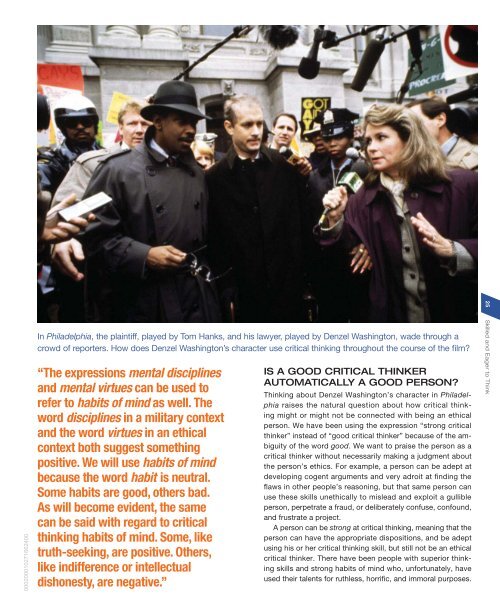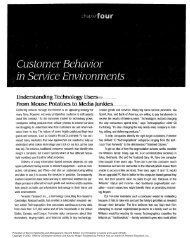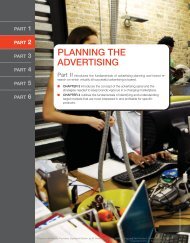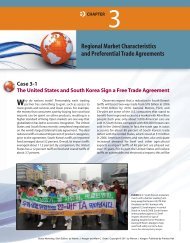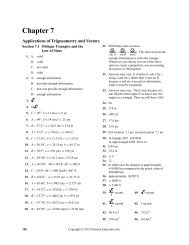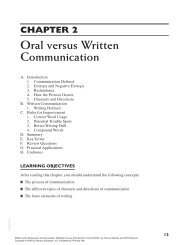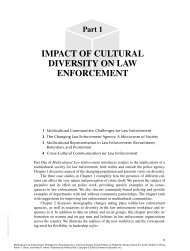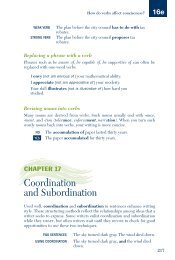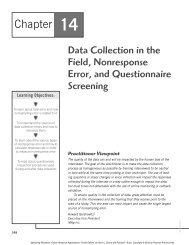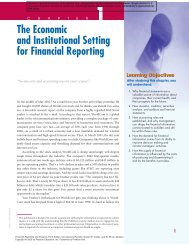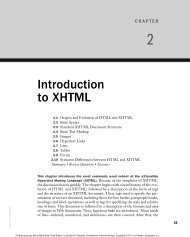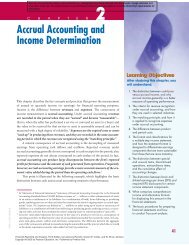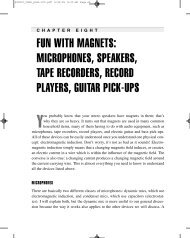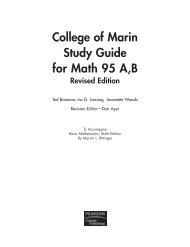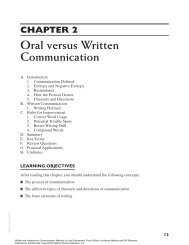Critical Thinking Disposition Self- Rating Form. - Pearson Learning ...
Critical Thinking Disposition Self- Rating Form. - Pearson Learning ...
Critical Thinking Disposition Self- Rating Form. - Pearson Learning ...
Create successful ePaper yourself
Turn your PDF publications into a flip-book with our unique Google optimized e-Paper software.
25<br />
000200010271662400<br />
In Philadelphia, the plaintiff, played by Tom Hanks, and his lawyer, played by Denzel Washington, wade through a<br />
crowd of reporters. How does Denzel Washington’s character use critical thinking throughout the course of the film<br />
“The expressions mental disciplines<br />
and mental virtues can be used to<br />
refer to habits of mind as well. The<br />
word disciplines in a military context<br />
and the word virtues in an ethical<br />
context both suggest something<br />
positive. We will use habits of mind<br />
because the word habit is neutral.<br />
Some habits are good, others bad.<br />
As will become evident, the same<br />
can be said with regard to critical<br />
thinking habits of mind. Some, like<br />
truth-seeking, are positive. Others,<br />
like indifference or intellectual<br />
dishonesty, are negative.”<br />
IS A GOOD CRITICAL THINKER<br />
AUTOMATICALLY A GOOD PERSON<br />
<strong>Thinking</strong> about Denzel Washington’s character in Philadelphia<br />
raises the natural question about how critical thinking<br />
might or might not be connected with being an ethical<br />
person. We have been using the expression “strong critical<br />
thinker” instead of “good critical thinker” because of the ambiguity<br />
of the word good. We want to praise the person as a<br />
critical thinker without necessarily making a judgment about<br />
the person’s ethics. For example, a person can be adept at<br />
developing cogent arguments and very adroit at finding the<br />
flaws in other people’s reasoning, but that same person can<br />
use these skills unethically to mislead and exploit a gullible<br />
person, perpetrate a fraud, or deliberately confuse, confound,<br />
and frustrate a project.<br />
A person can be strong at critical thinking, meaning that the<br />
person can have the appropriate dispositions, and be adept<br />
using his or her critical thinking skill, but still not be an ethical<br />
critical thinker. There have been people with superior thinking<br />
skills and strong habits of mind who, unfortunately, have<br />
used their talents for ruthless, horrific, and immoral purposes.<br />
Skilled and Eager to Think<br />
Think <strong>Critical</strong>ly, by Peter Facione and Carol Ann Gittens. Published by Prentice Hall. Copyright © 2013 by <strong>Pearson</strong> Education, Inc.


